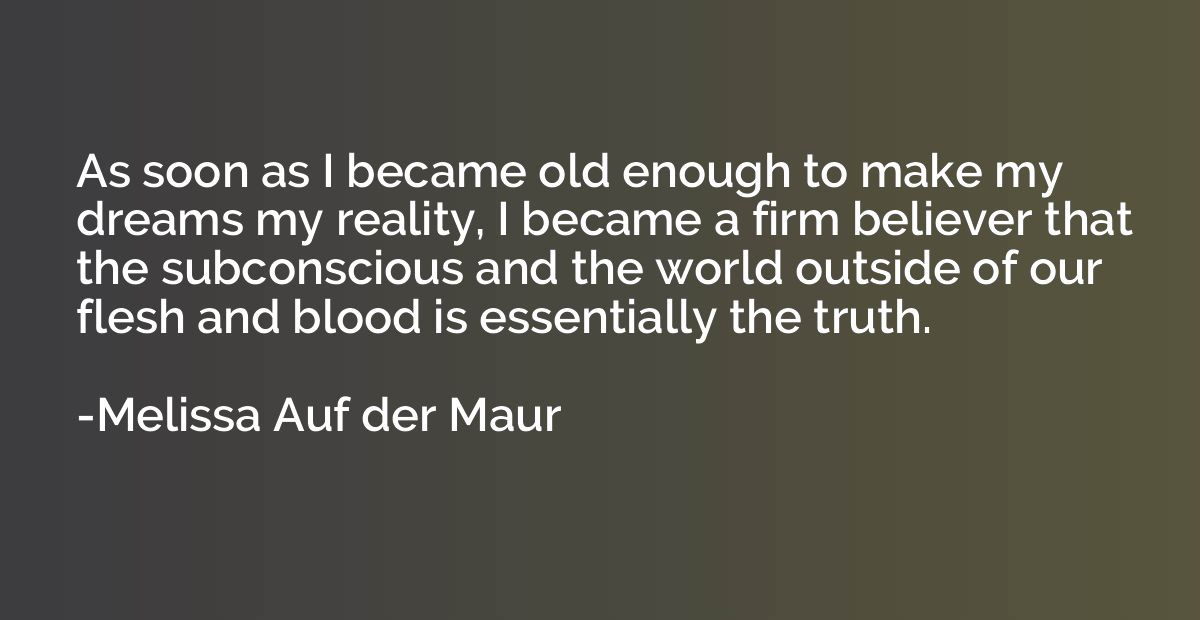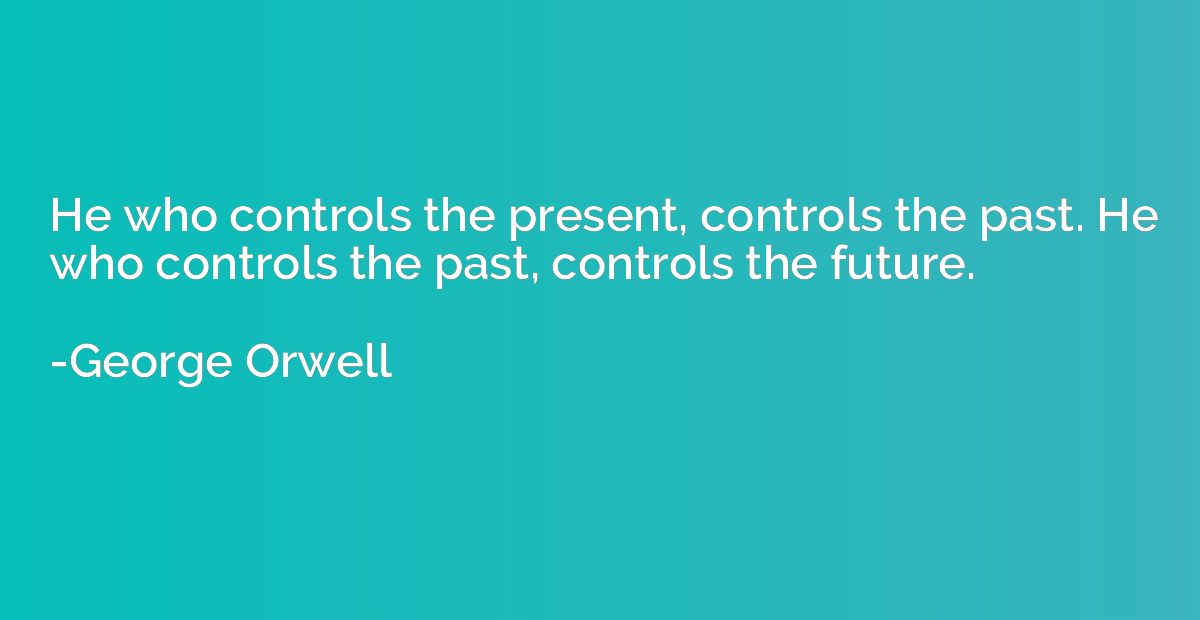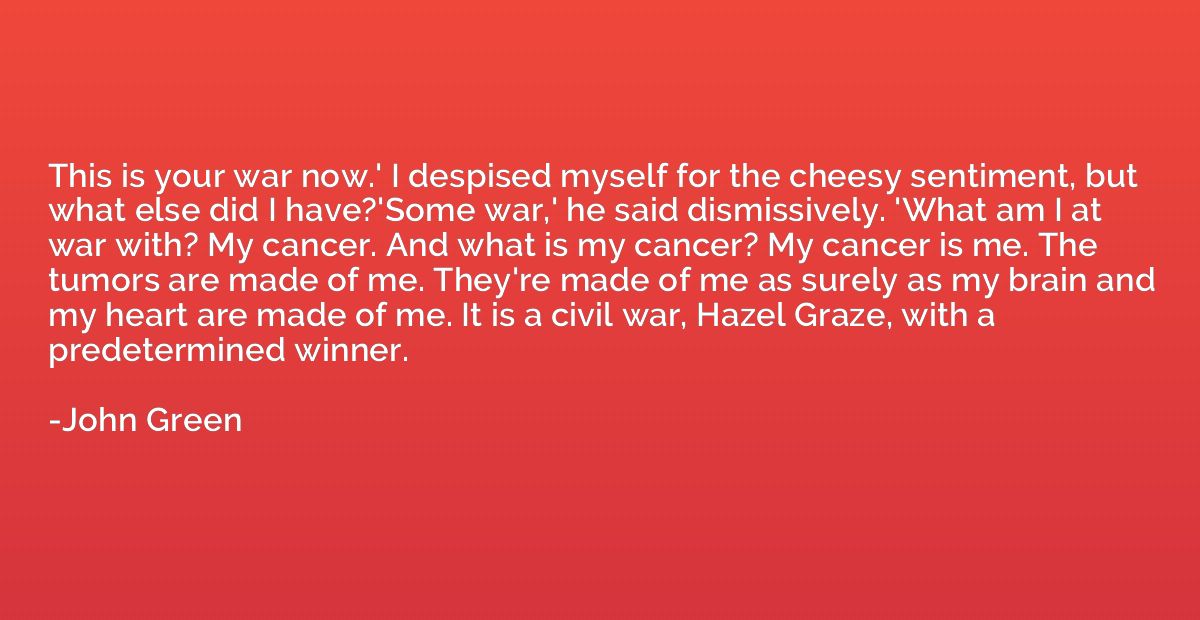Quote by Melissa Auf der Maur
As soon as I became old enough to make my dreams my reality, I became a firm believer that the subconscious and the world outside of our flesh and blood is essentially the truth.

Summary
This quote reflects the belief that one's subconscious mind and the external world hold the essence of truth. It suggests that once one reaches an age where they can actualize their dreams, they start to understand the significance of their inner thoughts and instincts. It implies that there is a deeper reality beyond the physical realm, highlighting the importance of intuition and the hidden dimensions of consciousness. This viewpoint advocates for embracing and exploring one's subconscious mind as a means to discover the genuine truths that exist beyond the tangible world.














